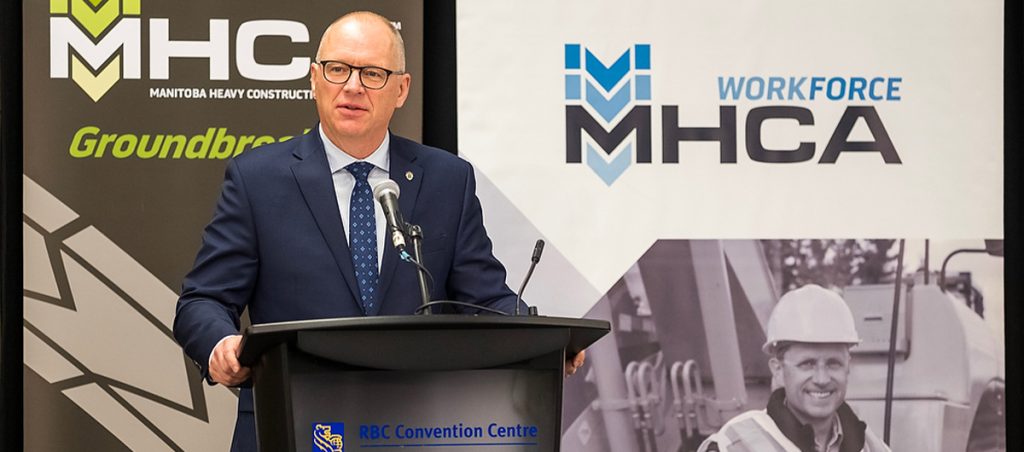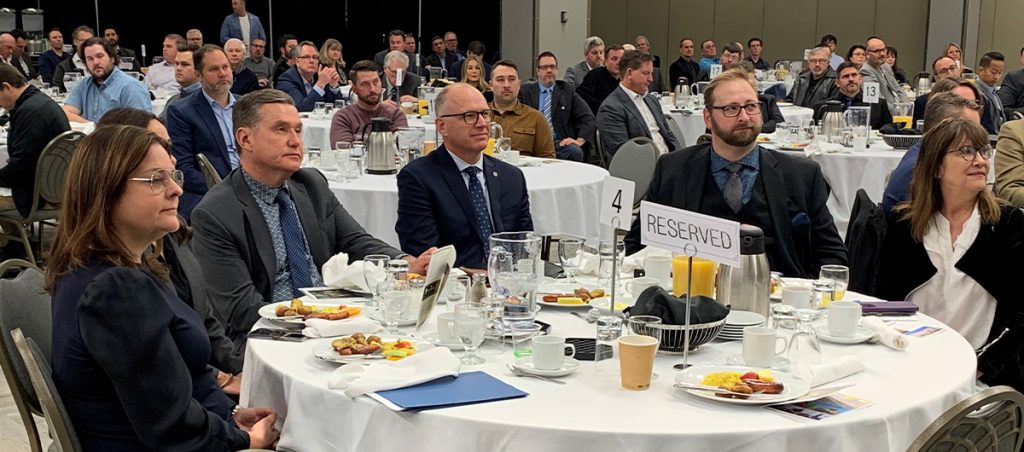Long-term strategic infrastructure plan makes sense: MHCA
The promotion of a depoliticized, long-term infrastructure investment plan by a former Pallister senior staff comes as no surprise given its logic, MHCA President Chris Lorenc says.
David McLaughlin, a long-time Pallister aide and the former premier’s cabinet clerk, is advocating for a new agenda for Premier Heather Stefanson’s government, including establishing a special operating agency, proposed to be named Infrastructure Manitoba, to set out multi-year financing plans for strategic infrastructure.
As a stand-alone agency, operating outside of government, Infrastructure Manitoba would work out long-term vision for infrastructure investment that is now planned and budgeted across multiple government departments, McLaughlin said in commentary published in the Winnipeg Free Press January 5.
Portions of capital budgets now go unspent, McLaughlin noted, injecting risk and uncertainty for private partners and exposing taxpayers to additional costs.
“As it applies to MI and core transportation infrastructure, its functioning elements are largely the plan we have advanced to the provincial government for years,” Lorenc said.
Further, the MHCA has for years encouraged the province to make Manitoba Infrastructure central to the government’s economic growth strategy, to centralize strategic infrastructure planning so decision-making puts a “return on investment” lens on financing and individual project prioritization.
In addition, MHCA’s long-standing advocacy has pressed for multi-year budgets for the highways capital program, to promote long-term planning and investment in trade transportation infrastructure, the network that carries people to work and goods to market.
“At present, the good news is that the province is moving toward three-year highways capital budgets and hopes to do five-year budgets, on the encouragement of MHCA’s advocacy,” said Lorenc.
Each year a portion of the highways capital budget goes unspent. The MHCA has pressed for long-term planning so there are shovel-worthy projects on the shelf, ready to be pulled out for any budget year in which there is room for more work within the annual program.
“With the transportation infrastructure investment deficit Manitoba is facing – estimated at $6 billion in highways and $3 billion in bridges – there is no reason that budgeted investment should go unspent,” Lorenc said.
A special operating agency to plan, guide and work with the private sector to manage infrastructure investment would not just depoliticize the investment strategy, it would allow industry a long-term vision of what is expected of it. That way, business planning can line up resources, such as personnel, labour force, supplies and capital expenditures.
“Clearly what we have now and how we manage it is not working. It is costing Manitobans in the hundreds of millions of dollars. It requires organizational re-engineering and a fix,” said Lorenc. “A special operating agency, arm’s length from government, or a strategic group within government including engaged private sector participation are options worth examining.”
Lorenc said something as basic as purchasing or renewing inventory of heavy equipment – involving many millions of dollars for a company of average size – involves considerable risk. Knowing government’s long-range investment plan for public infrastructure makes a huge difference to that kind of private sector planning.
“It triggers investment in our community, including hiring people and giving them some confidence in long-term employment.”
McLaughlin said establishing Infrastructure Manitoba should be one of three areas given special attention by Stefanson to reset cabinet focus to improve the provincial economy. The other two were: focusing on early childhood education to ensure children are prepared for school years; and, creation of an Indigenous health secretariat to improve the health status and outcomes of aboriginal peoples.








